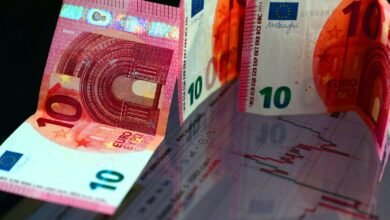
The derivatives market is a sophisticated financial ecosystem where investors trade contracts derived from underlying assets’ values. These assets could include stocks, bonds, commodities, currencies, or indices. Derivatives serve multiple purposes, including risk management, speculation, and enhancing portfolio performance. Understanding the intricacies of the derivatives market, particularly in a prominent economy like Germany, is essential for navigating global financial landscapes effectively.
Overview of the Derivatives Market in Germany
Germany hosts one of the world’s most prominent derivatives markets, characterized by its robust infrastructure and regulatory framework. Key institutions like Deutsche Börse and Eurex are pivotal players, offering a wide array of derivative products to cater to diverse investor needs. The German derivatives market plays a critical role in the country’s financial ecosystem, facilitating price discovery, risk transfer, and capital allocation.
Trends in the German Derivatives Market
In recent years, the German derivatives market has experienced significant growth driven by several factors. One notable trend is the proliferation of exchange-traded derivatives (ETDs) and over-the-counter (OTC) derivatives, reflecting investors’ increasing appetite for risk management and speculation. Moreover, technological advancements have revolutionized trading platforms, making derivatives more accessible to retail investors while enhancing liquidity and transparency.
The regulatory landscape has also evolved, with initiatives like the Markets in Financial Instruments Directive (MiFID II) influencing market dynamics and product innovation. As a result, the German derivatives market continues to adapt to changing regulatory requirements, fostering investor confidence and market integrity.
Risks Associated with the Derivatives Market
Despite their utility, derivatives carry inherent risks that investors must carefully manage. Market risk, stemming from price fluctuations in underlying assets, is a primary concern. Investors may also face credit risk, where counterparties fail to honour their contractual obligations, leading to potential financial losses.
Liquidity risk is another significant challenge, especially in times of market stress when it may be challenging to execute trades at desired prices. Additionally, operational risks, such as technological failures or human error, can disrupt market functioning and undermine investor trust. Effective risk management practices and regulatory oversight are crucial for mitigating these risks and safeguarding market stability.
Read More: German Economic Outlook: Implications for Finance
Impact of Technology on the Derivatives Market
Technology has played a transformative role in shaping the modern derivatives market, driving innovation and efficiency gains across the value chain. Fintech companies have introduced disruptive solutions, such as algorithmic trading algorithms and risk analytics platforms, empowering investors with advanced tools for decision-making and execution.
Automation has streamlined trading processes, reducing operational costs and minimizing manual errors. Moreover, advancements in distributed ledger technology (DLT) hold the potential to revolutionize derivative clearing and settlement processes, enhancing transparency and reducing counterparty risk.
Role of Derivatives in Hedging and Speculation
Derivatives serve dual purposes: hedging against adverse price movements and facilitating speculative trading strategies. Hedging allows investors to mitigate risk exposure by entering into offsetting positions, thereby protecting against potential losses. For example, a company may use futures contracts to hedge against fluctuations in commodity prices, ensuring stable input costs.
Speculative trading, on the other hand, involves capitalizing on price movements to generate profits. While speculative trading carries higher risks, it also offers opportunities for enhanced returns, attracting a diverse range of market participants, including institutional investors, hedge funds, and individual traders.
Recent Developments and Future Outlook
The German derivatives market is constantly evolving, driven by ongoing regulatory reforms, technological innovations, and shifting market dynamics. Recent developments include efforts to enhance market transparency, strengthen investor protection, and promote market integrity. For example, regulatory authorities have introduced measures to enhance derivatives reporting requirements and mitigate systemic risks.
Looking ahead, the future of the German derivatives market appears promising yet challenging. Emerging trends, such as the rise of environmental, social, and governance (ESG) derivatives and digital asset derivatives, are poised to reshape market dynamics and product offerings. However, geopolitical uncertainties, regulatory scrutiny, and technological disruptions pose potential challenges that market participants must navigate effectively.
Read More: German Venture Capital Market: Opportunities and Challenges
Conclusion
The derivatives market in Germany remains a dynamic and integral component of the global financial system, providing essential risk management tools and investment opportunities to market participants worldwide. Despite inherent risks, derivatives offer valuable benefits, including portfolio diversification, liquidity provision, and price discovery. As the market continues to evolve, staying informed about regulatory developments, technological advancements, and emerging trends is crucial for investors and market participants to navigate successfully.
FAQs
What are derivatives, and how do they work?
Derivatives are financial contracts whose value is derived from an underlying asset’s value. They enable investors to speculate on price movements, hedge against risks, and enhance portfolio performance.
What are the main types of derivatives traded in Germany?
The German derivatives market offers a wide range of products, including futures, options, swaps, and forwards, covering various asset classes such as equities, commodities, currencies, and interest rates.
How does technology impact derivative trading?
Technology plays a crucial role in enhancing market efficiency, transparency, and accessibility. It enables faster trade execution, advanced risk management, and algorithmic trading strategies, empowering investors with sophisticated tools for decision-making.
What risks are associated with derivative trading?
Derivative trading involves various risks, including market risk, credit risk, liquidity risk, and operational risk. Effective risk management practices and regulatory oversight are essential for mitigating these risks and safeguarding market stability.
What is the future outlook for the German derivatives market?
The German derivatives market is poised for continued growth and innovation, driven by regulatory reforms, technological advancements, and evolving market dynamics. However, challenges such as geopolitical uncertainties and regulatory changes may impact market growth in the future.











